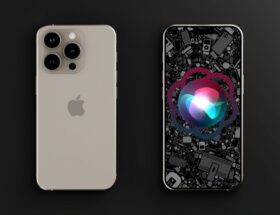Apple asked to confirm it doesn't use 'conflict minerals' in iPhones
 10 Facebook x.com Reddit
10 Facebook x.com Reddit
Congo has formally accused Apple of covering up war crimes by using conflict minerals in its supply chain, while France and Belgium have criminal complaints filed.
Apple and at least most major tech companies have long been accused of sourcing tin, tungsten, and tantalum — 3T materials — from regions where it means funding violent groups. And now Apple has been hit with two criminal complaints filed by the Congolese government.
The lawsuit alleges that conflict minerals are laundered through multiple sales and shell companies before ending up with Apple suppliers. As such, Apple is directly responsible, complicit and should be held accountable for crimes against humanity occurring in Congo, according to the lawsuit, uncovered by Reuters early Tuesday.
Specifically, the charges filed in France and Belgium focus on alleged failures by the conflict minerals tracking body ITSCI. The group is funded by the metals industry and certifies materials leaving Congo and other conflict zones as free of slave labor and from official sources.
The complaint in France alleges that ITSCI is not a reliable source of certification. In fact, the Responsible Minerals Initiative (RMI) is one of the groups discrediting ITSCI.
RMI removed ITSCI from its list of trusted accountability monitors for conflict minerals in 2022 and will not be reinstated until 2026 at best.
Apple is an RMI member and still cited ITSCI five times in its 2023 report after RMI denied it.
“It is clear that the Apple group, Apple France and Apple Retail France are well aware that their mineral supply chain is based on systemic wrongdoing,” the French complaint says.
The charges are the first two of their kind against the predominantly American big tech companies. The allegations include concealing war crimes, trading in stolen goods, engaging in deceptive commercial practices and laundering tainted minerals.
More complaints will be filed against other companies.
French and Belgian courts will now determine what charges, if any, will be brought against Apple France, Apple Retail in France and Apple Retail Belgium.
Apple and Conflict Minerals
There are no reliable substitutes for 3T minerals, only alternative sources. The tech industry will depend on them for the foreseeable future.
Tin is used in resistors, solder, batteries, and more. Tantalum is commonly alloyed and is a major component in the production of microchips. Tungsten is another common element used throughout the electronics industry.
It is therefore imperative that the minerals are sourced by large tech companies. And given that where large concentrations exist, it is imperative that it is done through reliable — and legal — sources that do not rely on slave labor or through channels that perpetuate conflict in regions like the Congo.
Apple has been monitoring the situation for decades. That monitoring reached a fever pitch in 2020.
In 2020, Apple said it had stopped using 18 smelters and refineries for violating rules regarding these conflict materials.
Then in 2022, it stopped working with 12 more suppliers over the issue.
In April 2024, Congo began questioning the effectiveness of Apple's stated Supplier Code of Conduct. A group of international lawyers wrote to Apple CEO Tim Cook and Apple's subsidiaries in France, asking for responses within three weeks.
Congo was apparently not satisfied with Apple's response.
Apple does not buy conflict minerals directly. Instead, it uses its supply chain to do so and publishes an annual report on it.
In its most recent 2023 report, Apple said none of its smelters or refineries financed armed gangs that sold conflict materials outside of official channels.
“Apple’s Supplier Code of Conduct…, which includes the Apple Supplier Responsibility Standard for Responsible Material Sourcing,” Apple told the U.S. Securities and Exchange Commission (SEC) in 2022, “… requires suppliers, smelters, refiners, and processors in our supply chain to identify and assess a broad range of risks beyond conflict, including social, environmental, and human rights risks.”
“Since 2009, Apple has excluded 163 3TG smelters and refineries from its supply chain (a total of nine tantalum smelters and refineries, 50 tin smelters and refineries, 19 tungsten smelters and refineries, and 85 gold smelters and refineries),” the company said in its SEC filing. “In 2021, we excluded 12 smelters and refineries from our supply chain, including those that were unwilling to participate in or undergo third-party audits or that otherwise did not meet our responsible mineral sourcing requirements.”
Follow AppleInsider on Google News










